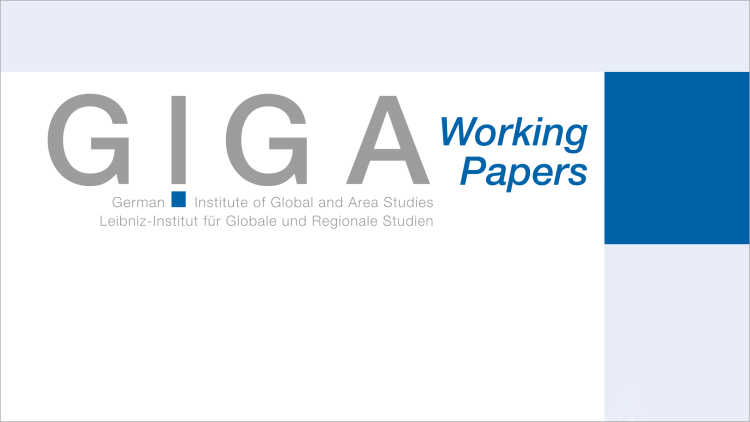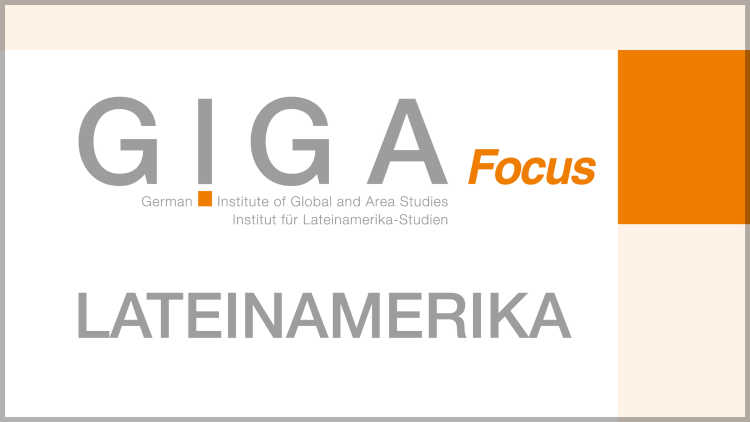- Startseite
- Publikationen
- GIGA Focus
- Global Health, Aid Effectiveness and the Changing Role of the WHO
GIGA Focus International Edition English
Global Health, Aid Effectiveness and the Changing Role of the WHO
Nummer 3 | 2010 | ISSN: 1862-3581
The fear of pandemics, the significance of health in the fight against poverty, and a proliferation of new actors have increasingly directed international attention towards global health. In this context, the financial resources available for global health as well as the flexibility in problem solving have increased significantly, but at the cost of a proliferation of public and private actors which tends to inhibit the effective use of these resources. The Paris Declaration on Aid Effectiveness has been broadly embraced in global health, and there has been a reappraisal of the coordinating role of the World Health Organization (WHO).
Analysis
Since the 1990s the growing number of actors involved has considerably changed the field of global health governance (GHG). Partnerships between states, international governmental organizations (IGOs) such as the WHO, the pharmaceutical industry, and also civil society organizations have helped overcome conflicts between the profit-driven production of medicines and the health needs of poor countries. However, they have also led to a vast entanglement of responsibilities, with the WHO losing its profile as the central authority on global health. In recent years, however, the impacts of the Paris Declaration on GHG and a number of other processes have again strengthened the position of the WHO:
Important efforts have been undertaken to improve effectiveness in global health.
Initiatives at the country level have strengthened support for national health systems.
At the WHO two binding international agreements have been concluded and are now administered in Geneva: the Framework Convention on Tobacco Control and the (new) International Health Regulations. Increasing the participation of non-state actors through organizational reforms could further strengthen the WHO’s role.
In 2008 the WHA passed the Global Strategy and Plan of Action on Public Health, Innovation and Intellectual Property Rights. The 2010 WHA discussed proposals to finance this strategy, but adjourned the decision to 2011.
On May 10, 2010, the Council of the European Union adopted the far-reaching Conclusions on the EU role in Global Health, supporting “increased leadership of the WHO at global, regional and country level” and improved access to medicines and health services in developing countries.
Fußnoten
Regionalinstitute
Forschungsschwerpunkte
Wie man diesen Artikel zitiert
Hein, Wolfgang, und Ilona Kickbusch (2010), Global Health, Aid Effectiveness and the Changing Role of the WHO, GIGA Focus International Edition English, 3, Hamburg: German Institute for Global and Area Studies (GIGA), http://nbn-resolving.de/urn:nbn:de:0168-ssoar-275096
Impressum
Der GIGA Focus ist eine Open-Access-Publikation. Sie kann kostenfrei im Internet gelesen und heruntergeladen werden unter www.giga-hamburg.de/de/publikationen/giga-focus und darf gemäß den Bedingungen der Creative-Commons-Lizenz Attribution-No Derivative Works 3.0 frei vervielfältigt, verbreitet und öffentlich zugänglich gemacht werden. Dies umfasst insbesondere: korrekte Angabe der Erstveröffentlichung als GIGA Focus, keine Bearbeitung oder Kürzung.
Das German Institute for Global and Area Studies (GIGA) – Leibniz-Institut für Globale und Regionale Studien in Hamburg gibt Focus-Reihen zu Afrika, Asien, Lateinamerika, Nahost und zu globalen Fragen heraus. Der GIGA Focus wird vom GIGA redaktionell gestaltet. Die vertretenen Auffassungen stellen die der Autorinnen und Autoren und nicht unbedingt die des Instituts dar. Die Verfassenden sind für den Inhalt ihrer Beiträge verantwortlich. Irrtümer und Auslassungen bleiben vorbehalten. Das GIGA und die Autorinnen und Autoren haften nicht für Richtigkeit und Vollständigkeit oder für Konsequenzen, die sich aus der Nutzung der bereitgestellten Informationen ergeben.



